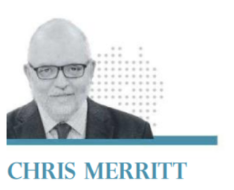
03 November 2022
When Anthony Albanese addressed the Garma festival in July he outlined a proposed change to the Constitution that would create an Indigenous Voice to parliament. It should be rejected.
The Prime Minister’s provision would consist of three sentences establishing an institution whose structure, jurisdiction and powers are uncertain. Those matters would be determined later – not by the voting public but by judges and politicians.
The community is being asked to endorse a new institution while having only a limited idea of what we are voting for. That means we cannot make a fully informed decision.
Any entity established in such circumstances would be forever vulnerable to the charge that it lacks democratic legitimacy.
We are being confronted with an attempt to change the Constitution by stealth. It should not be rewarded.
Seven years ago, when constitutional recognition of Indigenous people was again on the national agenda, I was among those arguing for change. But the three sentences from the Garma festival are unworthy of support.
Key elements have either been kept secret or are simply unknown. The few details that have been made public make it clear that core parts of the scheme favoured by the Indigenous community will not be part of the Constitution.
The government says it will determine detailed plans for the Voice after the referendum. That will give politicians more say than voters.
Other aspects of the new institution will need to be determined by the High Court in order to clarify issues that have been left unresolved in the provision unveiled at Garma.
The Constitution derives its legitimacy from the people – not from judges and politicians. It is therefore regrettable that all details of the proposed institution have not been submitted for approval or rejection.
New & improved business newsletter. Get the edge with AM and PM briefings, plus breaking news alerts in your inbox.
Sign up
Few would buy a house sight unseen. So why would we change the Constitution before knowing exactly what the change will mean?
Once the words from Garma are part of the Constitution, the involvement of the High Court is inevitable. The Constitution means what the court says it means. And because the meaning of those three sentences is not entirely clear, the court will have a major say on the future of the Voice.
This is undesirable for two reasons: the first is that it would embroil the court in debates that are, in essence, political. The second reason concerns the court’s recent propensity for judicial creativity on the subject of Indigenous affairs.
In a 2020 case known as Love and Thoms, the High Court punched a hole in the doctrine of equality before the law in order to prevent foreign criminals with Aboriginal ancestry from being deported. One judge even invoked the metaphysical while inventing a constitutional restriction on the power to deport foreign criminals. If there is one subject that is best resolved elsewhere, it is the future of the Voice.
Avoiding difficult issues instead of confronting them in open debate might be viewed by some as a clever tactic to secure a political win. But this is the Constitution. If a change is made, it will be with us forever – either uniting or dividing the nation.
Preventing voters from making a fully informed decision is asking for trouble.
If the referendum succeeds, those on the losing side could argue that the Voice had been secured by deception – poisoning community relations and bringing the new institution into disrepute.
This is the reverse of the outcome that those of goodwill who support the Voice are seeking to achieve.
The proposed constitutional provision fails to meet the expectations of those seeking to entrench in the Constitution a representative body exclusively for Indigenous Australians that must be consulted by parliament.
The word “representative” does not appear in the three sentences Albanese wants to add to the Constitution, nor do they contain any suggestion that parliament would be obliged to consult the new body.
If consulting the Voice is so important, why is there no reference to it in the three sentences that would form part of the Constitution?
The second sentence from Garma does not clearly define and thereby limit the role of the institution. The language is merely permissive – the Voice “may make representations” on “matters relating to Aboriginal and Torres Strait Islander people”. This would not restrict the Voice to such a role. If there had been an intention to do so, the second sentence would have included one more word making it clear that the Voice may “only” make representations.
That was not done.
The uncertainty does not end there. What, exactly, are “matters relating to” Aboriginal and Torres Strait Islander people? Does that extend to matters that affect everyone?
If the government intended to confine the Voice to Indigenous affairs, it would have restricted it to providing representations on matters that arise under section 51 (xxvi) of the Constitution, which gives the government authority to make special laws for Indigenous people.
By declining to use section 51 (xxvi) to limit the reach of the Voice, the proposed wording leaves the way open for this body to eventually go beyond Indigenous affairs, regardless of any subsequent legislation.
The words from Garma are hopelessly vague. They mean the High Court inevitably will be asked to determine if this entity can involve itself in the formation of laws and policies that affect every Australian. The only safe course is to vote no.
Chris Merritt is vice-president of the Rule of Law Institute of Australia. This is an edited extract from his essay in Beyond Belief: Rethinking the Voice to parliament to be published this month by Connor Court Publishing.
